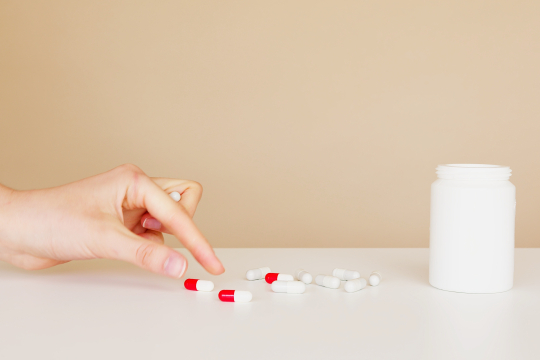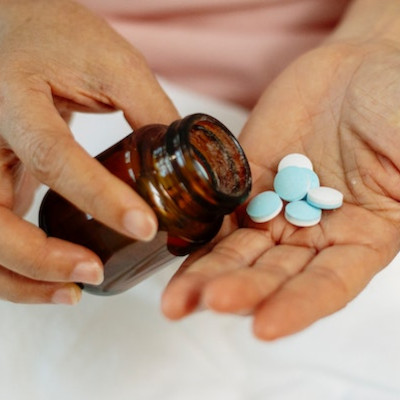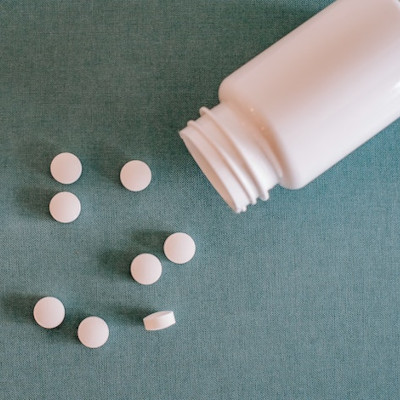
Drinking Alcohol While Taking Medication: All The Dos And Don’ts
As we develop health conditions that require medication for long term management, we aren’t always prepared to change our lifestyles to benefit our health. Will drinking alcohol while taking medication hurt your health, now or in the long term? Keep reading for the information you need.
Table of Contents:
Is it really so bad to mix medications and alcohol?
The implications of drinking alcohol while taking medication vary based on a number of factors, including the type of medication and how much you drank. Medication can change the effects of alcohol, and vice-versa, so it’s important to be aware of how alcohol will interact with your medication before choosing to drink.
Some examples of how alcohol may interfere with drugs include:
Alcohol can affect how medications are absorbed by the digestive tract
Alcohol can affect how medications are absorbed by the digestive tract, either preventing a medication from working because not enough of it is absorbed, or enabling too much to be absorbed, allowing toxic levels of the medication to enter your system.
Alcohol can worsen the side effects of medication or cause new ones
Alcohol can worsen the side effects of medication or cause new ones. Drugs that cause drowsiness can be especially dangerous, as alcohol can strengthen the effects of the drug and cause your body to stop breathing.
Not every drug label will specifically warn against consumer alcohol
While most medications that have dangerous interactions with alcohol have clear warnings on the label, not every drug label will specifically warn against consumer alcohol. The best way to ensure you are not causing significant harm to your body short or long term is to discuss with your doctor if any of your medications pose a significant risk.
Alcohol and over the counter medications (OTCs)
Different types of OTCs can have different effects, as detailed by category below.
Pain killers
Occasionally taking OTC painkillers like ibuprofen and alcohol is generally safe, assuming the person is otherwise healthy, took the medication as directed, and is only having a moderate amount of alcohol. Over time, however, this combination can cause stomach ulcers, stomach bleeding, kidney problems, drowsiness, and liver damage.
Caution should be taken when drinking alcohol while on any of the following OTC painkillers:
- Acetaminophen (Tylenol)
- Ibuprofen (Advil)
- Naproxen (Aleve)
- Meloxicam
- Aspirin
Allergy, cold, and flu
Allergy and multi-symptom cold and flu medications commonly cause side effects of drowsiness and dizziness. Because alcohol has the same effects, drinking alcohol while taking medication for these conditions can leave you seriously impaired and vulnerable. Combined with other medical conditions or unsafe environments, the results of this combination can be dangerous – or even deadly.
Mixing allergy medications like Claritin and alcohol may make your medications less effective. Long term, the frequent mixing of these drugs with alcohol can result in liver damage.
While occasionally indulging in moderate amounts of alcohol while using these drugs may not cause any serious side effects, you should still avoid doing so because of the immediate risks caused by more amplified side effects of both.
Other drugs you should avoid mixing with alcohol include:
- Dayquil or Nyquil
- Alavert (Loratadine)
- Diphenhydramine (another name for Benadryl)
- Vistaril (Hydroxyzine)
- Zyrtec (Cetirizine)
Alcohol and opioids
Combining opioids and alcohol is a deadly combination. Because both opioids and alcohol cause slow or impaired breathing, drowsiness, dizziness, impaired motor control, and memory loss, mixing them amplifies these effects. Alcohol also increases the risk of a fatal overdose.
Opioids are narcotics and should never be mixed with alcohol, including drugs such as:
- Hydrocodone
- Oxycodone
- Tramadol (narcotic analgesics)
- Demerol
- Percocet
- Vicodin
- Darvocet
Antidepressants and anti-anxiety medications
There are a number of reasons why it is best to avoid mixing antidepressants or anti-anxiety medications and alcohol, due to:
Severe symptoms of depression and anxiety
More severe symptoms of depression and anxiety due to alcohol’s overall effect counteracting your medication.
Impaired mental clarity and alertness
Impaired mental clarity and alertness as antidepressants and benzodiazepines amplify the effects of alcohol to judgment, coordination, reaction time, and motor skills.
Extreme drowsiness
Extreme drowsiness can result from combining antidepressants or benzodiazepines, which have sedative effects that can be intensified when you drink.
Rage, aggression, and hostile behavior
Rage, aggression, and hostile behavior are possible side effects of benzodiazepines that are more likely to occur when you’re drinking alcohol.
Increased feelings of hopelessness or suicidal ideation.
Increased feelings of hopelessness or suicidal ideation can be exacerbated when consuming alcohol while taking antidepressants or anti-anxiety medications, posing serious risks to mental health.
Examples of antidepressants and anti-anxiety medications you should avoid drinking while taking include:
Selective serotonin reuptake inhibitors (SSRIs)
- Lexapro (Escitalopram)
- Zoloft (Sertraline)
- Cymbalta (Duloxetine)
- Celexa (Citalopram)
- Effexor (Venlafaxine)
Antidepressants
- Wellbutrin (Bupropion)
- Prozac (Fluoxetine)
- Desyrel (Trazodone)
Benzodiazepines
- Xanax (Alprazolam)
- Ativan (Lorazepam)
- Klonopin (Clonazepam)
Other drug interactions
Below are some other examples of how alcohol interacts with certain drugs:
Antibiotics
Alcohol can prevent antibiotics from working as efficiently to stop the infection being treated. Combining alcohol and antibiotics has also been linked to rapid heartbeat, sudden blood pressure changes, headache, upset stomach, and liver damage.
Those taking Flagyl (Metronidazole) must be warned – drinking alcohol within 72 hours before starting or stopping Flagyl, or with Flagyl, can result in you becoming very nauseous and vomiting profusely, making you extremely ill.
Other antibiotics you should avoid drinking while taking include:
- Bactrim
- Cephalexin
- Keflex (Cephalexin)
- Macrobid (Nitrofurantoin)

Muscle relaxants

As with many other medications, the effects of muscle relaxants are enhanced when combined with alcohol, putting you in danger of seizures, impaired breathing, memory loss, and impaired perception and judgment.
You should not drink alcohol while taking muscle relaxants like:
- Flexeril (Cyclobenzaprine)
- Baclofen
- Atarax
- Antivert (Meclizine)
- Soma (Carisoprodol)
Anticonvulsants
Combining drugs like Lamictal or Gabapentin and alcohol puts you at higher risk of seizures, and can cause severe drowsiness and lightheadedness.
Drugs for erectile dysfunction
Drinking alcohol in large amounts while taking medication for erectile dysfunction can cause a sharp drop in blood pressure when getting up from a seated or reclined position. Falling due to these symptoms of dizziness or fainting can result in bone fractures or other more serious accidents.
If you have other medical conditions, you should discuss with your doctor whether or not it’s safe for you to drink alcohol while taking:
- Viagra (Sildenafil)
- Cialis (Tadalafil)
- Levitra or Staxyn (Vardenafil)
- Stendra (Avanafil)
Sedatives/hypnotics
Medications designed to help you sleep should never be combined with alcohol, as it greatly increases the chance of fatal overdose due to intensified effects on the central nervous system when combined.
Sleep aids to avoid mixing with alcohol include:
- Ambien (Zolpidem)
- BuSpar (Buspirone)
- Lunesta (Eszopiclone)
- Prosom (Estazolam)
- Restoril (Temazepam)
- Unisom (Doxylamine)
Elite Home Detox Can Help You Let Go Of Alcohol And Embrace Your Health
Since drinking alcohol while taking medication can have dangerous consequences, it’s always important to speak to your physician before you take any risks.
For individuals who are struggling to reduce your drinking despite health risks posed by medication interactions, Elite Home Detox is here to help. We offer recovery healthcare in the comfort and privacy of your home, including medically managed detox, family and addiction counseling, and aftercare coordination services.
If you believe a loved one is dealing with alcohol dependency, our Intervention Specialists can work with you and the rest of their support network to help motivate your loved one to receive help. We know you have questions, and we’re ready with answers. Reach out to Elite Home Detox today!
Related:
- Is Alcoholism A Disease, Addiction, Or Disorder?
- The Beginner’s Guide To Alcohol Detox
- Learn The Signs And Symptoms Of Alcohol Withdrawal
- In-Home Detox for Alcohol Addiction
- Alcoholic Nose: Why It Appears & How To Treat It
- What Are The Long-Term Effects Of Fetal Alcohol Syndrome In An Adult?
- How Long Does Alcohol Stay In Your Blood And Other Questions, Answered



 Erika Kamish is a nationally board-certified physician assistant licensed by the California Physician Assistant Committee. With over 6 years of experience in addiction medicine and primary care, she reviews Elite Home Detox content for medical accuracy and patient-centered care.
Erika Kamish is a nationally board-certified physician assistant licensed by the California Physician Assistant Committee. With over 6 years of experience in addiction medicine and primary care, she reviews Elite Home Detox content for medical accuracy and patient-centered care.